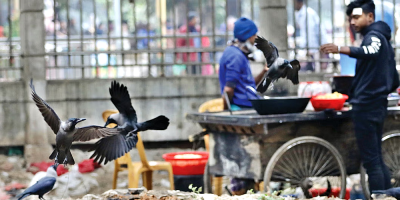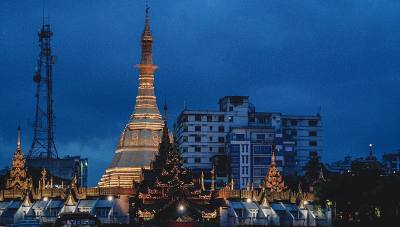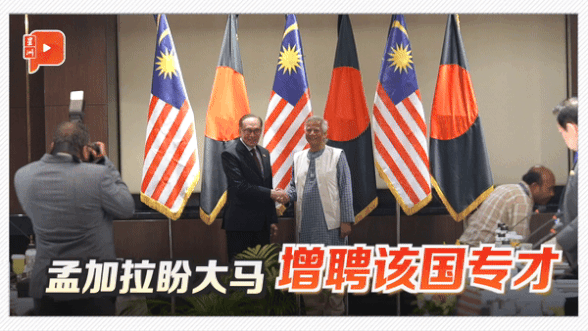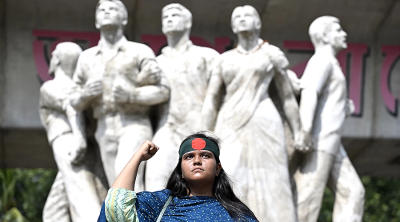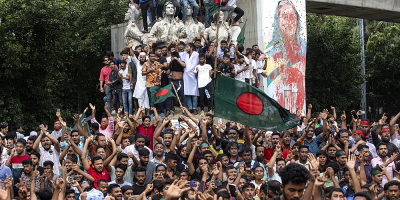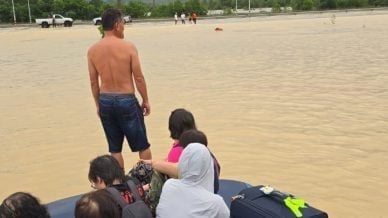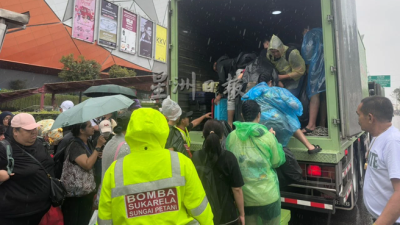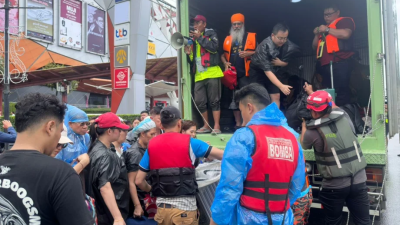KUTUPALONG, Bangladesh: A minority in a minority, transgender Rohingya beautician Tanya has faced discrimination on even more fronts than most other residents of the world’s biggest refugee camp.
Five years ago, Myanmar’s military launched a brutal crackdown on the Rohingya, forcing an estimated 750,000 of them — including Tanya and her family — to flee and take shelter in squalid settlements across the Bangladesh border.
Since then, Tanya’s skills with mascara and foundation have earned her a reputation as one of the best make-up artists in Cox’s Bazar — and better earnings than most other Rohingya.
But she still has to contend with harassment from fellow members of the often socially conservative Muslim ethnic group, as well as recriminations from her own family.
“My soul says I’m a woman,” the 22-year-old told AFP. “I don’t understand why other people have a problem with that.
“I liked to dress up and do make-up like girls from a very young age. My family didn’t like it. My brothers used to hit me. They were ashamed of me.”
She came out as trans in her early teens and said she had been subjected to violence and abuse ever since.
“I was called a curse of the devils and a punishment from Allah,” she said.
Since her arrival, she has found work at a salon, where dyeing the hair and painting the lashes of excited brides is a welcome respite from life in the camp, a sprawling patchwork of overcrowded shanty homes fashioned from tarpaulin and bamboo.
Tanya is “the best beautician in the entire district”, according to her client Salma Akter.
“She is a hijra, but she is very good,” Akter told AFP, using a common South Asian term for a “third gender”.
“People come here from all over the region to get their face done by her.”
Tanya is now one of a lucky few bringing a steady income into her community.
But the around 300 Rohingya refugees in Bangladesh who openly identify as transgender are routinely subjected to discrimination, taunts and physical attacks from other members of their community.
“There are many instances of Rohingya transgender being brutally beaten and left on the roads in pool of blood,” said Dil Afrose Chaity, who works with transgender Rohingya refugees in Bangladesh.
“During the pandemic, one of them was beaten for sporting bigger hair. They were accused of carrying coronavirus to the camp with their hair,” Chaity said.
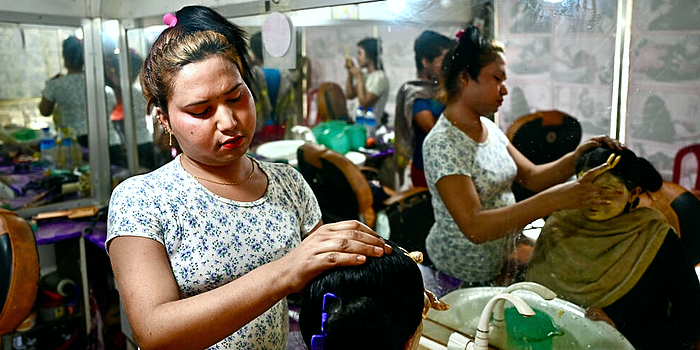
New horizons
Myanmar’s Rohingya had already labored under decades of discrimination when the military attacked in 2017.
An international tribunal in The Hague is investigating the violence, which has been designated by the United States as an act of genocide.
Despite the trauma of the crackdown, arriving in Bangladesh opened new horizons for Tanya, who found a much larger transgender community that welcomed her with open arms and gave her the female name she now uses.
She began offering beauty services from her shelter in Kutupalong before her talents were discovered by a Bangladeshi businessman, who set up a salon for her at a market outside the camp.
Her earnings have helped her win some respect from her family, with whom she shares a home.
But they have not accepted her identity.
Elder sister Gul Bahar, who still refers to Tanya by her birth name and gender, says she hopes her sibling “would start being like my older brothers again”.
“Whenever he is out on the road, people laugh at him. Sometimes they follow him to our door and mock him,” she told AFP.
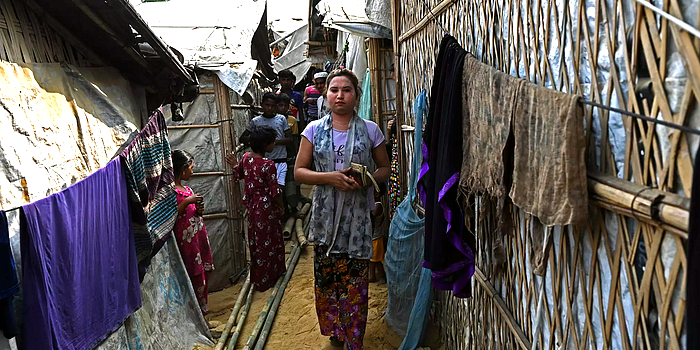
‘Man or woman’
The taunts and abuse have hardened Tanya’s resolve and cast her in the role of mentor to other members of her community, some of whom she has invited into the salon to learn the beauty trade.
“People call us boy whores even when we’d simply walk on the road minding our own business,” Farhana, a fellow transgender refugee, told AFP while working in the salon as a trainee.
“If we react, they’d group up and start beating us. Tanya shows us how to ignore these taunts.”
Tanya plans to eventually set up her own salon and hire other transgender women to work alongside her, offering them the same respite from the rejection and insults of other refugees.
“There are more hijra in the camps than you see. Most are afraid to come out,” she said.
“I dream of a time when it will never occur to anyone here whether I have a body of a man or woman.”
ADVERTISEMENT
ADVERTISEMENT






